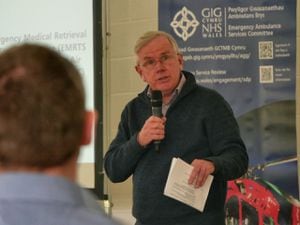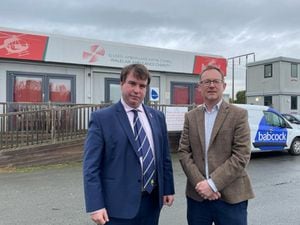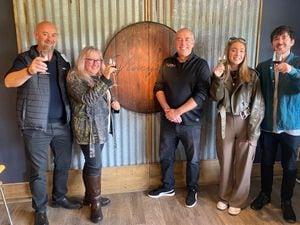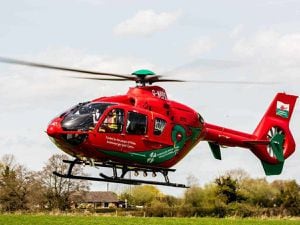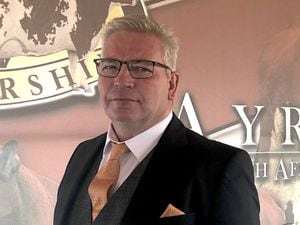Election 2015: Miliband, Clegg and Farage all quit as Tories win majority and Shropshire goes blue
Ed Miliband, Nick Clegg and Nigel Farage today all resigned as the leaders of their parties following a General Election rout in which Shropshire was painted blue after every seat in the county fell to the Tories and David Cameron returned to Number 10 with a Conservative majority of 12.
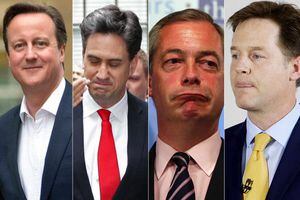
With all 650 seats declared, the Tories ended on 331 seats in the House of Commons, 24 more than in 2010. Labour have ended up with 232, the Lib Dems 8, the SNP 56, Plaid Cymru 3, UKIP 1, the Greens 1 and others 19.
In Shropshire, Lucy Allan took Telford for the Conservatives for the first time in history, while other Tories in The Wrekin, Shrewsbury and Atcham, Ludlow, North Shropshire and Montgomeryshire also regained their seats.
Mr Farage said he was recommending that Deputy Charirman Suzanne Evans, who stood for Ukip in Shrewsbury & Atcham, should be the party's interim leader. But he also said he might stand again for re-election in the leadership ballot.
David Cameron promised voters "we are on the brink of something special in this country" this afternoon as he returned to Downing Street as a Prime Minister with a Tory Commons majority for the first time.
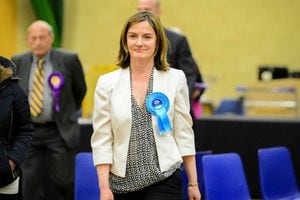
In Telford Lucy Allan won by 730 votes, winning 16,094 seats from incumbent MP David Wright to become only the second female MP to represent a constituency in Shropshire.
It brings to an end Mr Wrights 14-year tenure as Telfords MP, which has been painted red ever since it was spun off from The Wrekin in 1997.[figure caption="Daniel Kawcyzynski" title="Daniel Kawcyzynski" align="right" url="/wpmvc/wp/wp-content/uploads/2015/05/Kawczynski.jpg" alt="Daniel Kawcyzynski" id="754057"]
Daniel Kawcyzynski recaptured Shrewsbury and Atcham ahead of Labours Laura Davies.[figure caption="Philip Dunne" title="Philip Dunne" align="right" url="/wpmvc/wp/wp-content/uploads/2015/05/Dunne.jpg" alt="Philip Dunne" id="754055"][figure caption="Owen Paterson" title="Owen Paterson" align="right" url="/wpmvc/wp/wp-content/uploads/2015/05/Paterson.jpg" alt="Owen Paterson" id="754053"]
Philip Dunne and Owen Paterson won comfortably in Ludlow and North Shropshire respectively.[figure caption="Mark Pritchard" title="Mark Pritchard" align="right" url="/wpmvc/wp/wp-content/uploads/2015/05/Pritchard.jpg" alt="Mark Pritchard" id="754061"]
Mark Pritchard extended his majority to notch up another record margin of victory in The Wrekin.[figure caption="Glyn Davies" title="Glyn Davies" align="right" url="/wpmvc/wp/wp-content/uploads/2015/05/Davies.jpg" alt="Glyn Davies" id="754051"]
Glyn Davies became the first Conservative to retain the Montgomeryshire seat.
The premier saw his seat tally tick over the all important mark of 326, an absolute majority, while he was at Buckingham Palace with Her Majesty The Queen.
He paid tribute to Nick Clegg's work as Deputy Prime Minister and welcomed Ed Miliband's "typically gracious" concession call earlier today.
Standing in Downing Street in front of the famous black door, Mr Cameron said: "We can make Britain a place where a good life is in reach for everyone who is willing to work and do the right thing."
The Prime Minister vowed to deliver his entire manifesto, including an in-out referendum on Britain's membership of the EU, now he had a majority government.
He said: "As we conduct this vital work we must ensure we bring our country together.
"As I said in the small hours of this morning, we will govern as a party of one nation, one United Kingdom.
"That means ensuring this recovery reaches all parts of our country from north to south, from east to west.
"And indeed it means rebalancing our economy, building that northern powerhouse. It means giving everyone in our country a chance so no matter where you are from you have the opportunity to make the most of your life."
Mr Cameron said he had "always believed in governing with respect", promising to implement further devolution to Wales, Scotland and Northern Ireland.
This evening Mr Cameron announced some of the positions in the Cabinet.
Michael Fallon is to continue as Defence Secretary, David Cameron said.
Philip Hammond who has been confirmed as Foreign Secretary arrived at Number 10 shortly after Mrs May, who is to remain as Home Secretary.
Mr Osborne's reappointment as Chancellor of the Exchequer is a mark of the PM's appreciation of his handling of the Treasury throughout the five years of coalition government, and continues a record of continuity in the two top posts of government since 2010.
The Chancellor's "long-term economic plan" was a centrepiece of the election campaign which delivered Conservatives a 12-seat overall majority in the House of Commons and his plans for £30 billion of "consolidation" to eliminate the deficit will be at the heart of the new government's agenda.
During the course of the election, Mr Cameron repeatedly told voters they could secure the stability of having Mr Osborne back at the Treasury by voting Conservative on Thursday.
Mr Cameron will wait until Monday to name the rest of his Cabinet, with more junior jobs being shared out later in the week.
The Prime Minister has a greater scope for patronage among Conservative MPs now that he no longer has to make space in his Cabinet for five Liberal Democrat MPs, as well as a dozen or more in the lower ministerial ranks.
First Secretary of State, a title also given to George Osborne, is a title used only sporadically by prime ministers, usually to mark the special favour given to close allies and colleagues of particular importance to the government.
Previous holders included Mr Hague from 2010-15, Lord Mandelson from 2009-10, John Prescott from 2001-07 and Michael Heseltine from 1995-97. There was no holder of the title between 1970 and 1995 or between 1997 and 2001.
Reflecting on the devastating results, Mr Miliband said he took "absolute and total responsibility" for the result, offering apologies to big Labour beasts including Ed Balls and Jim Murphy who were defeated overnight.
He added: "Britain needs a strong Labour Party, Britain needs a Labour Party that can rebuild after this debate so we can have a government that stands up for working people again.
"And now it is time for someone else to take forward the leadership of this party. So I am tendering my resignation, taking effect after this afternoon's commemoration of VE Day at the Cenotaph.
"I want to do so straight away because the party needs to have an open and honest debate about the right way forward, without constraint."
Mr Clegg said: "I always expected this election to be exceptionally difficult for the Liberal Democrats, given the heavy responsibilities we've had to bear in government in the most challenging of circumstances.
"But clearly results have been immeasurably more crushing and unkind than I could ever have feared. For that, of course, I must take responsibility and therefore I announce I will be resigning as leader of the Liberal Democrats.
"For the last seven years it has been a privilege, a huge privilege, an unlimited honour to lead a party of the most resilient, courageous and remarkable people.
"The Liberal Democrats are a family and I will always be extremely proud of the warmth, good grace and good humour which our political family has shown through the ups and downs of recent years."
Mr Farage resigned as Ukip leader after finishing second in Thanet South, telling activists "I'm a man of my word" after promising defeat would force him to quit.
But Mr Farage raised the prospect he would consider running to return to the job after a summer off when the contest is held in September.
He said in his earlier concession speech that an "enormous weight has been lifted from my shoulders", adding that he had "never felt happier".
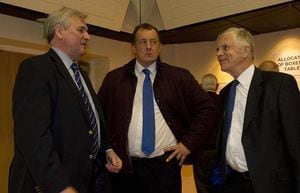
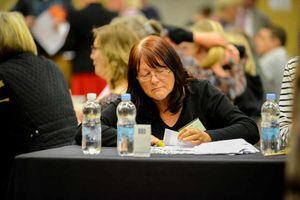
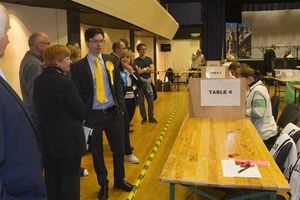
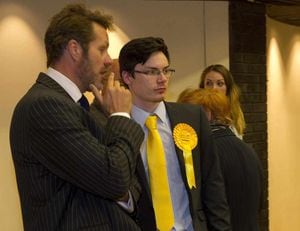
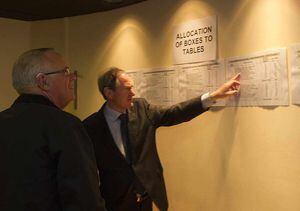
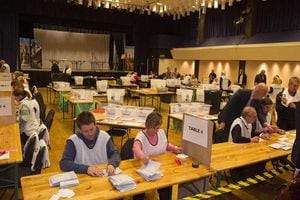
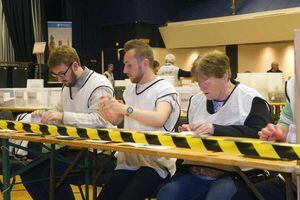
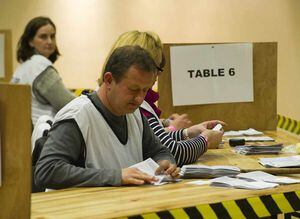
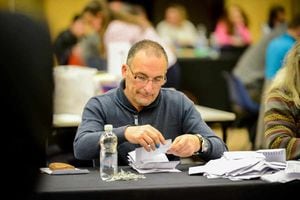
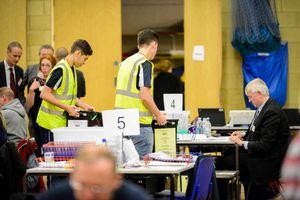
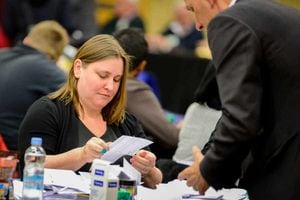
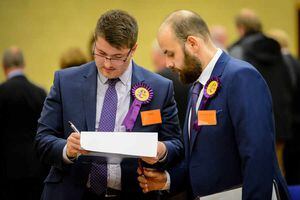
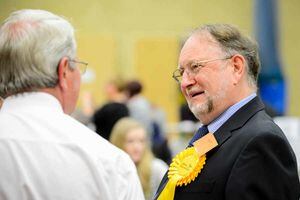
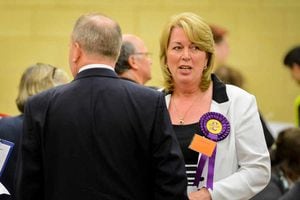
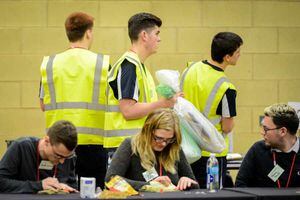
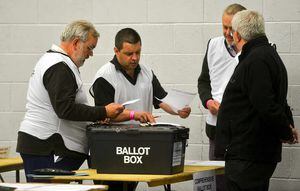
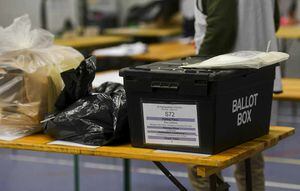
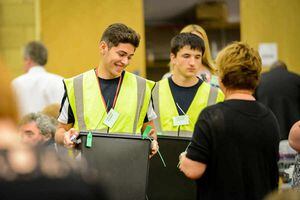
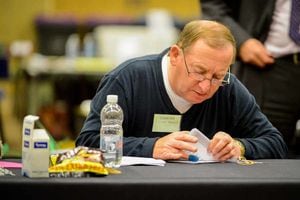
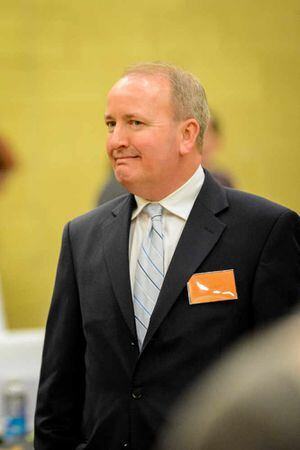
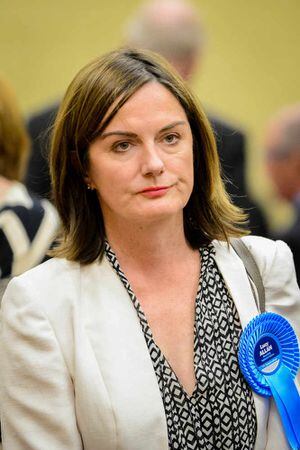
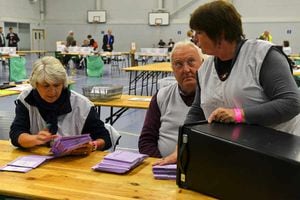
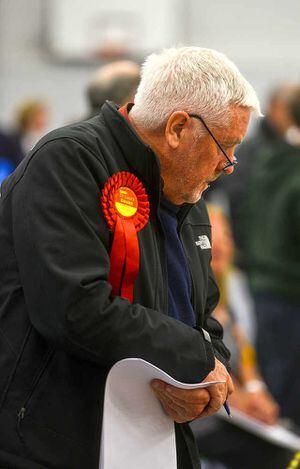
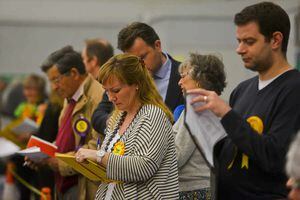
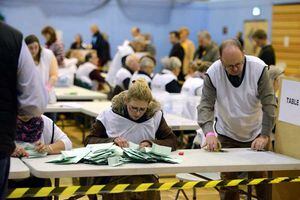
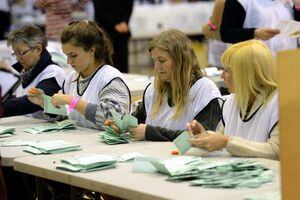
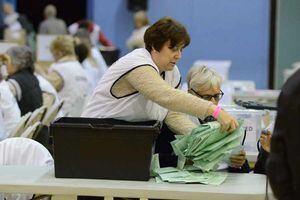
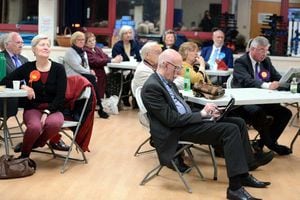
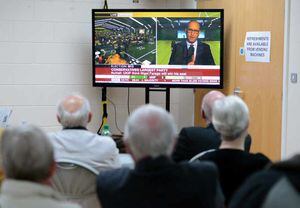
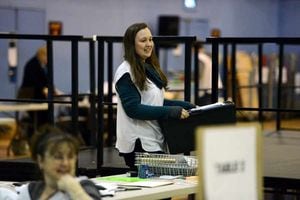
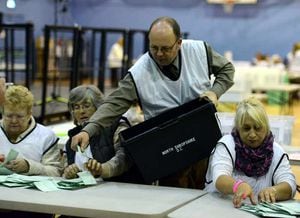
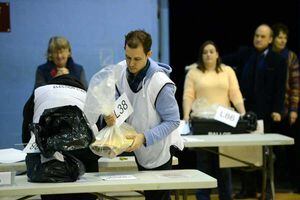
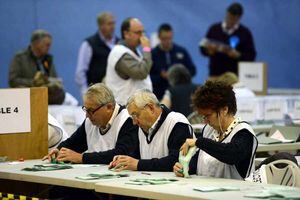
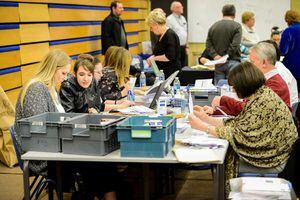
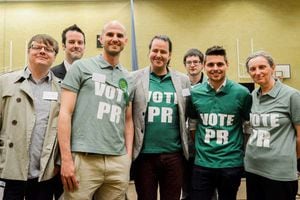
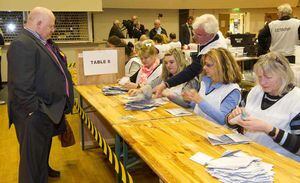
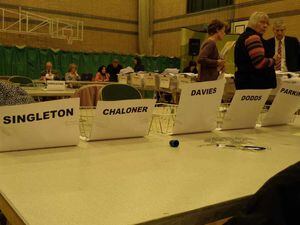
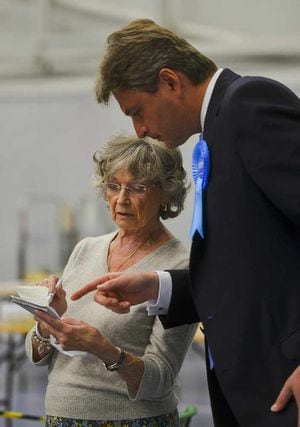
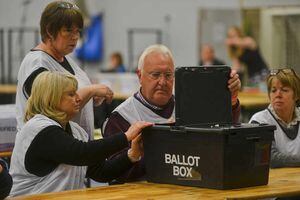
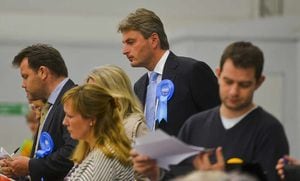
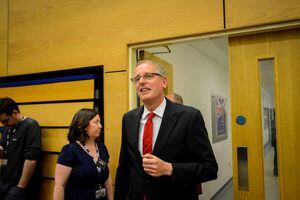
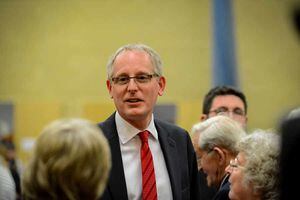
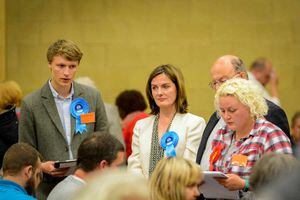
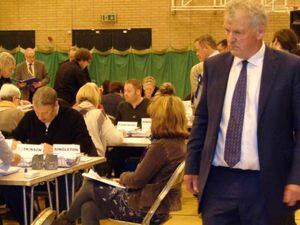
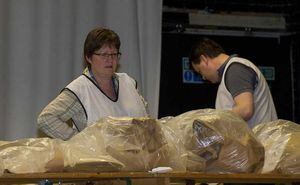
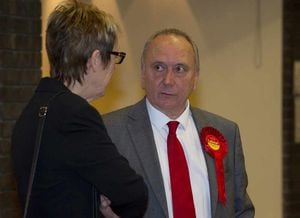
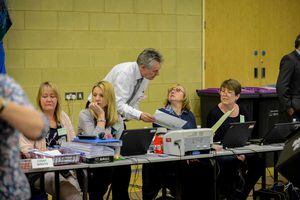
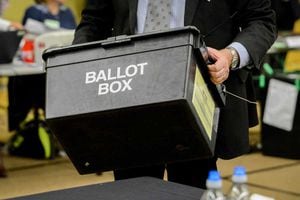
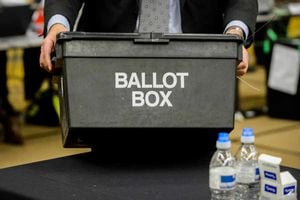
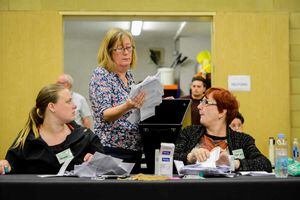
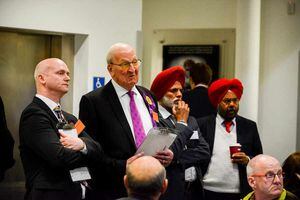
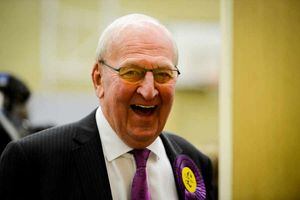
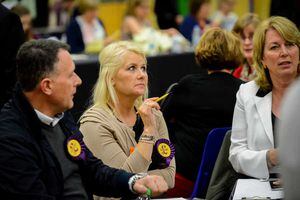
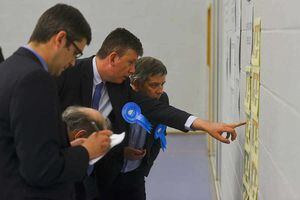
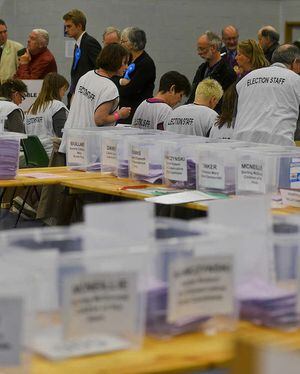
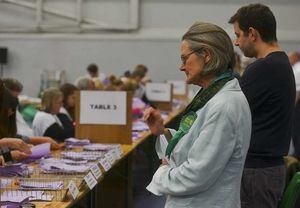
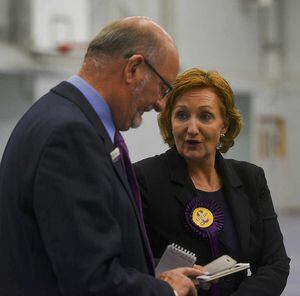
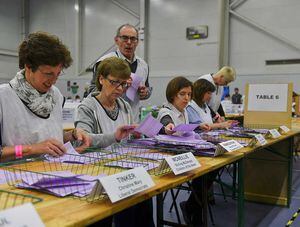
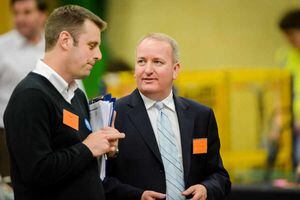
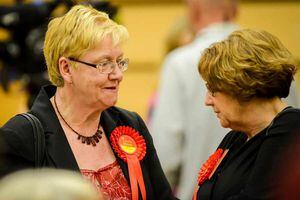
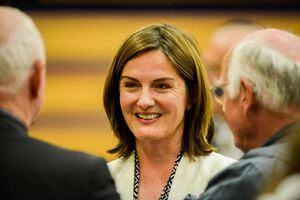
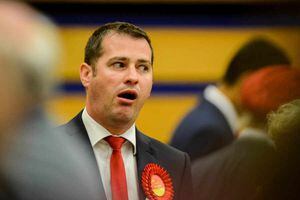
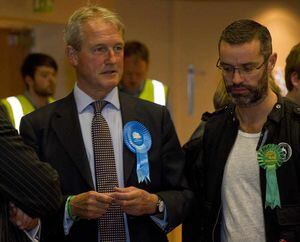
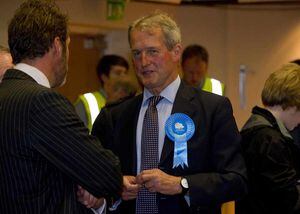
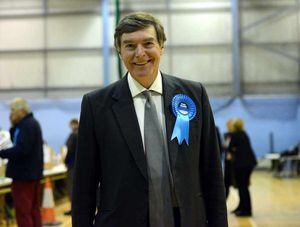
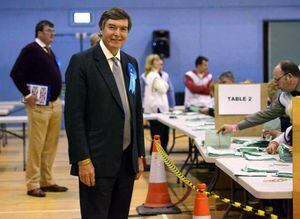
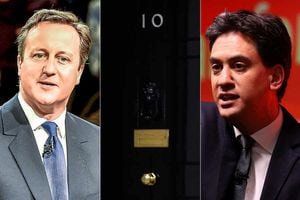
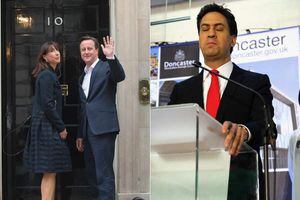

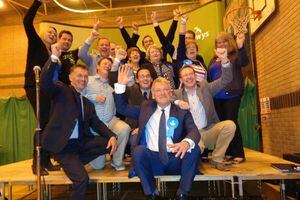
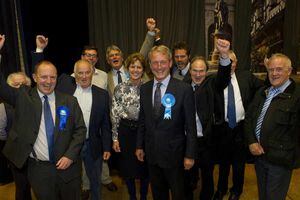
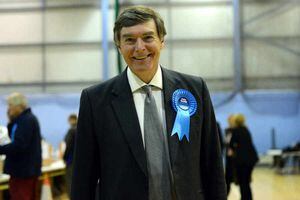
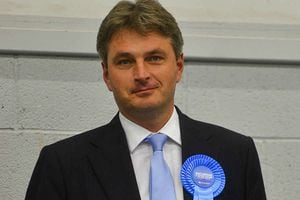

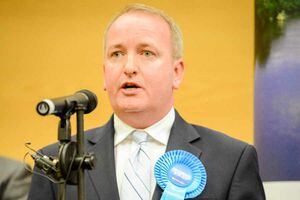
Today's resignations came after the Conservatives passed the 326 seats mark in the Commons this afternoon, giving them a small majority and following sweeping victories for Nicola Sturgeon's Scottish National Party decimated Labour's presence north of the border, with key figures including Scottish Labour leader Jim Murphy and Shadow Foreign Secretary Douglas Alexander defeated by SNP rivals.
Boris Johnson has also entered parliament after winning in Uxbridge and South Ruislip. And while David Cameron continues as Prime Minister, he will be under increased pressure to make the next government work with the man many people consider to be his successor now present in the Commons.
While Mr Cameron was expected to announce the first appointments to his new Cabinet later today, the Labour and the Liberal Democrats face the prospect of lengthy and potentially bruising leadership contests.
Labour deputy leader Harriet Harman said that she would take up the reins as stand-in leader until a permanent successor was in place, at which point she would step down as deputy as well.
With the Tories far outperforming expectations in an election which had been forecast to deliver another hung parliament, Mr Cameron will no longer have the buttress of a coalition with the Lib Dems and will have to govern with a slender majority.
The scene is set for a tricky few years for the Prime Minister, who will be vulnerable to rebellions by 30 to 40 Conservative backbenchers, who have already shown themselves ready to defy him on issues such as Europe and the family.
He will also be aware of potential successors manoeuvring to replace him after he his declaration prior to the election that this would be his final term as premier.
In Scotland, where shadow foreign secretary Douglas Alexander and Scottish Labour leader Jim Murphy were among the casualties of the nationalist surge, former SNP leader Alex Salmond said there had been an "electoral tsunami".
Mr Salmond, who returns to Westminster as MP for Gordon, said: ''There's going to be a lion roaring tonight, a Scottish lion, and it's going to roar with a voice that no government of whatever political complexion is going to be able to ignore."
But the party was denied the clean sweep some had predicted north of the border, as the Liberal Democrats held Orkney and Shetland, Labour retained Edinburgh South, and David Mundell was returned as the only Tory MP in Scotland, holding on to Dumfriesshire, Clydesdale and Tweeddale.

